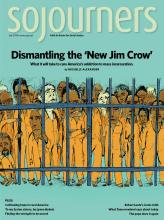FORGIVENESS IS wholeness, Nobel Peace Prize winner Archbishop Desmond Tutu and his daughter, Anglican minister Rev. Mpho Tutu, write in their newest collaboration,The Book of Forgiving. Scientific research shows that forgiveness has the power to transform us in spiritual, emotional, and even physical ways. That evidence is paired with the Tutus’ collective experience in counseling, studying, and teaching and their personal stories about the difficulty of forgiving. Archbishop Tutu writes about learning to forgive his abusive father. Mpho, who writes about learning to forgive the man who murdered her housekeeper in her home, is pursuing a PhD in the topic of forgiveness.
The book lays out some simple but critical truths: Everyone can be forgiven. Everyone deserves forgiveness. You must be willing to forgive. Forgiveness is not a weakness, nor a luxury. Forgiving others is a way to practice forgiving yourself. Through forgiveness, we all become whole again. Unconditional forgiveness is an act of grace that frees all parties from further indignity, and from self-blame and corrosive hatred.
The path to forgiveness seems simple enough when you can navigate it in four easy-to-follow steps: Tell the story. Name the hurt. Grant forgiveness. Renew or release the relationship. The path is also—sorry—a bit pedestrian. That doesn’t mean the route map isn’t useful. But the book will be most applicable if you have struggled to forgive or feel that even contemplating forgiveness is an impossible burden weighing heavy on your heart and soul. If you’re carrying a load you can’t seem to gracefully shrug off or leave by the side of the road, the Tutus can help you chart the course.
Read the Full Article
